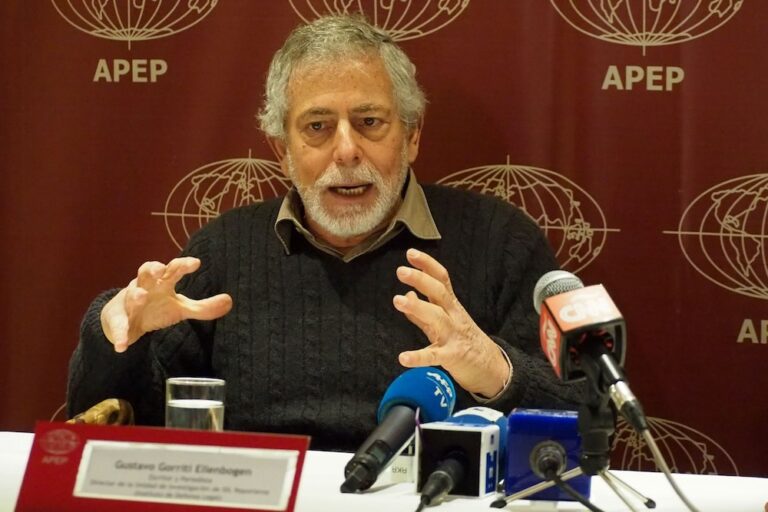(IPYS/IFEX) – IPYS has called for the lifting of restrictive measures against journalist Humberto Ortiz. The measures were imposed by Lima Superior Court Judge Carolina Lizárraga on 27 February 2004. Judge Lizárraga decided to prosecute the journalist on charges of “criminal conspiracy” and “concealing evidence” after Ortiz accused government circles of engaging in extortion and […]
(IPYS/IFEX) – IPYS has called for the lifting of restrictive measures against journalist Humberto Ortiz. The measures were imposed by Lima Superior Court Judge Carolina Lizárraga on 27 February 2004.
Judge Lizárraga decided to prosecute the journalist on charges of “criminal conspiracy” and “concealing evidence” after Ortiz accused government circles of engaging in extortion and shady dealings with members of the corruption ring that operated under former president Alberto Fujimori and his aide Vladamiro Montesinos. Several members of the ring are currently facing prosecution.
The journalist supported his story with audio tapes and documents that are allegedly in possession of the source who gave him the information. The information caused a political crisis. When judicial proceedings were launched against the individuals involved in the corruption ring, the courts also charged Ortiz.
The measures against Ortiz consist of seizure of the journalist’s property and he has been barred from leaving the country. According to IPYS, these measures violate Ortiz’s constitutional rights to freedom of movement, to freely choose where he will reside and to exercise his profession, among others.
In her ruling, Judge Lizárraga charged that Ortiz had tried to sell an audio tape in which César Almeyda, former head of the National Intelligence Council (Consejo Nacional de Inteligencia) and formerly a lawyer for President Alejandro Toledo, made dishonest proposals to Montesino’s accomplice, the late General Oscar Villanueva.
IPYS believes the measures against Ortiz are unjustified since the action for which he was charged – the private sale of information – is not, in this particular case, a crime under Peruvian law. In addition, the intent was to publicise the information, not conceal it.
IPYS believes that the court ruling sets an ominous precedent and could lead to restrictions on investigative journalism. In particular, IPYS objects to the assumption that journalists should turn over to the courts any information regarding criminal activities before it is published.
The organisation asked that Ortiz’s status in the case be changed from defendant to witness. The journalist, who lives in Miami, has been summoned by the courts and a warrant for his arrest could be issued if he does not appear in court.


